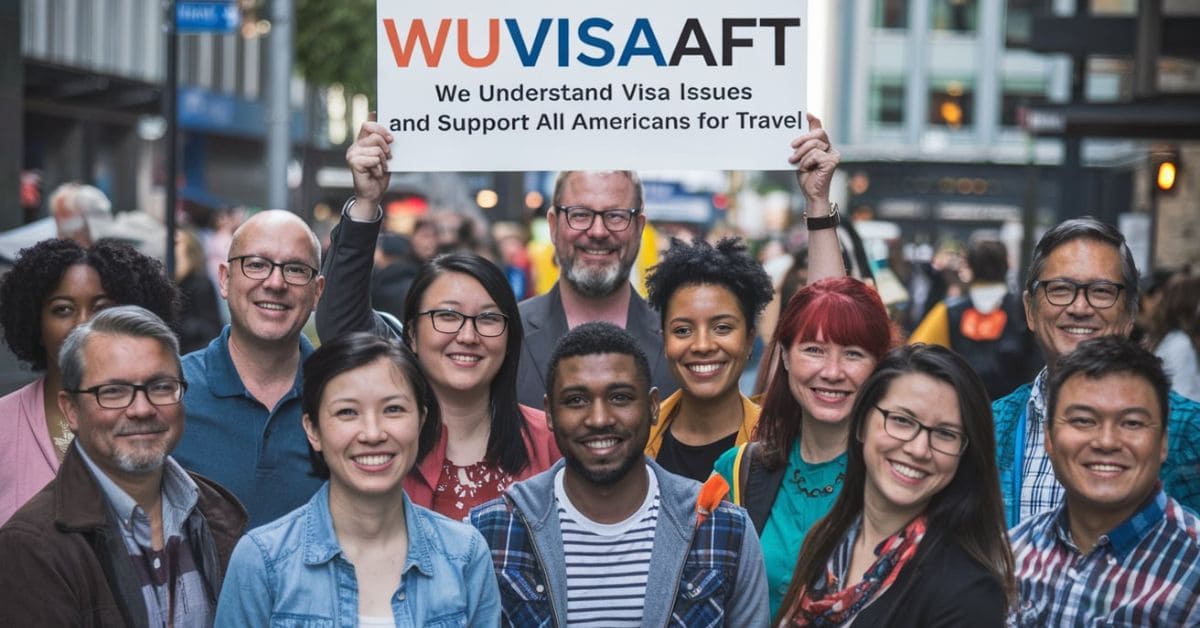Comprehensive Guide to WUVISAAFT: Understanding Your U Nonimmigrant Status and International Travel
Traveling internationally can be a daunting experience, especially for individuals who hold U nonimmigrant status in the United States. This article explores the concept of WUVISAAFT (a term related to U nonimmigrant status) and what it means for individuals considering international travel. We aim to provide a comprehensive understanding of the subject, along with interpretations, analyses, and insights that go beyond existing information.
What is U Nonimmigrant Status?
Overview of U Nonimmigrant Status
U nonimmigrant status, often referred to as U Visa, is a special type of visa designed to protect victims of certain crimes who have suffered substantial mental or physical abuse while in the United States. This visa not only offers protection but also allows eligible individuals to remain in the country to assist law enforcement in the investigation or prosecution of the criminal activity.
Who is Eligible for U Nonimmigrant Status?
To qualify for U nonimmigrant status, applicants must meet specific criteria:
- Victim of Criminal Activity: The individual must have been a victim of a qualifying crime, which includes but is not limited to domestic violence, sexual assault, human trafficking, and other specified crimes.
- Cooperation with Law Enforcement: The applicant must have cooperated with law enforcement agencies in the investigation or prosecution of the crime.
- Suffered Substantial Abuse: The individual must have suffered substantial physical or mental abuse as a result of the crime.
- Continuous Presence in the U.S.: Applicants must have been physically present in the United States when they filed the petition and must maintain continuous presence throughout the application process.
Benefits of U Nonimmigrant Status
Holders of U nonimmigrant status enjoy several benefits:
- Legal Status: They are allowed to live and work in the United States legally.
- Pathway to Permanent Residency: U Visa holders may apply for a Green Card after three years of continuous presence.
- Family Member Inclusion: Certain family members may also be eligible for derivative U status.
Understanding WUVISAAFT
What Does WUVISAAFT Mean?
WUVISAAFT stands for “Will I be able to travel internationally with my U nonimmigrant status?” This question arises frequently among U Visa holders who wish to travel outside the United States and are concerned about how their visa status might affect their ability to re-enter the country.
Key Considerations for International Travel
Before making any travel plans, U Visa holders should consider the following points:
- Travel Restrictions: While U Visa holders can travel abroad, there are specific conditions under which they may be denied re-entry into the United States.
- Traveling with Advance Parole: U Visa holders may need to apply for Advance Parole to re-enter the U.S. after traveling abroad. Advance Parole is a document that allows individuals with certain immigration statuses to return to the U.S. after temporary travel abroad.
- Impact of Travel on U Status: Leaving the United States without Advance Parole could jeopardize U nonimmigrant status. It’s crucial to consult with an immigration attorney before making any travel arrangements.
How to Apply for Advance Parole
Steps to Apply for Advance Parole
If you are a U Visa holder and wish to travel outside the United States, follow these steps to apply for Advance Parole:
- Form I-131 Submission: Fill out Form I-131, Application for Travel Document, and submit it to U.S. Citizenship and Immigration Services (USCIS).
- Provide Required Documentation: Include any necessary documentation, such as a copy of your U Visa approval notice, evidence of your eligibility for travel, and a detailed explanation of your travel plans.
- Pay the Filing Fee: Submit the required filing fee along with your application. Be sure to check the USCIS website for the most current fee structure.
- Await Decision: After submission, USCIS will process your application. Processing times can vary, so it’s advisable to apply well in advance of your planned travel.
- Receive Advance Parole Document: If approved, you will receive a document that permits you to re-enter the United States after your travels.
Important Tips for Traveling on Advance Parole
- Keep Documentation Handy: Always carry a copy of your Advance Parole document while traveling.
- Be Prepared for Questions: Be ready to answer questions from U.S. Customs and Border Protection (CBP) officers upon your return.
- Travel for Short Periods: It’s generally recommended to keep your travel brief to avoid complications with your U status.
Common Concerns About WUVISAAFT
Will Traveling Affect My U Nonimmigrant Status?
Traveling internationally can affect your U nonimmigrant status, especially if you do not have Advance Parole. If you leave the U.S. without it, your U status may be terminated, making it impossible to return.
What Happens if I Don’t Get Advance Parole?
If you attempt to travel without obtaining Advance Parole, you will likely face significant issues upon trying to re-enter the United States. This could result in denial of entry and potential loss of your U nonimmigrant status.
Can I Travel for Employment?
Traveling for employment purposes as a U Visa holder can be complicated. It’s essential to ensure you have the proper documentation in place, including Advance Parole, to avoid jeopardizing your status.
FAQs About WUVISAAFT
1. Can I travel to my home country with a U Visa?
Yes, you can travel to your home country, but it’s crucial to obtain Advance Parole before doing so to avoid complications with your U nonimmigrant status.
2. How long can I stay outside the U.S. with Advance Parole?
Typically, Advance Parole allows for re-entry to the U.S. as long as your travel does not exceed one year. However, longer absences may raise questions about your status upon re-entry.
3. What should I do if my Advance Parole is denied?
If your Advance Parole application is denied, you cannot travel outside the U.S. without jeopardizing your U nonimmigrant status. Consult with an immigration attorney to explore your options.
4. Can I apply for U.S. citizenship while holding a U Visa?
Yes, after three years of continuous presence and meeting other eligibility criteria, you may apply for U.S. citizenship.
5. Will I need to provide biometrics for Advance Parole?
Yes, you will typically need to provide biometrics, such as fingerprints, as part of the Advance Parole application process.
Conclusion
Understanding WUVISAAFT and the implications of traveling with U nonimmigrant status is crucial for individuals holding this visa. While the opportunity to travel internationally is possible, it comes with responsibilities and risks that must be carefully managed. Always seek professional legal advice when considering travel plans to ensure you are fully informed and prepared.
This article aims to provide not just a summary of existing information but also valuable insights and analyses tailored to U Visa holders. By understanding the nuances of WUVISAAFT, individuals can make informed decisions about their travel and maintain their U nonimmigrant status effectively.







